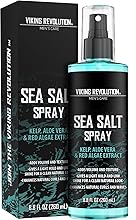
Want to be an ally to Indigenous people? Listen and unlearn, say 2 community workers
CBC
"Ally" is a complex word for Kortanie Kahwennahawi Raye. She defines it not as a label, but as a way of life.
"It's an ongoing practice," said Raye, who works as a community project assistant at the Montreal Indigenous Community Network (MICN). "You can't just give yourself a sticker and say, 'Well, I'm an ally now.'"
That's why, ahead of the first National Day for Truth and Reconciliation on Sept. 30, Raye says this Indigenous allyship toolkit is a valuable resource to keep on hand.
Launched by the Network in 2019, the toolkit provides an overview on terminology, what not to say to Indigenous people, a brief description of different nations, as well as a section that breaks down stereotypes and the realities behind them.
"It's a living document, so there's information being updated all the time and to see how many people are not aware of these things, it's upsetting," said Raye, who is Kanien'kehá:ka (Mohawk) and Inuk from Kahnawake, located on Montreal's South Shore.
Following the discovery of what are believed to be hundreds of unmarked graves at the sites of former residential schools in B.C.and Saskatchewan this year, many non-Indigenous people have begun taking steps toward reconciliation and advocating for Indigenous rights, according to Raye.
But despite good intentions, some allyship can do more harm than good.





















 Run 3 Space | Play Space Running Game
Run 3 Space | Play Space Running Game Traffic Jam 3D | Online Racing Game
Traffic Jam 3D | Online Racing Game Duck Hunt | Play Old Classic Game
Duck Hunt | Play Old Classic Game











